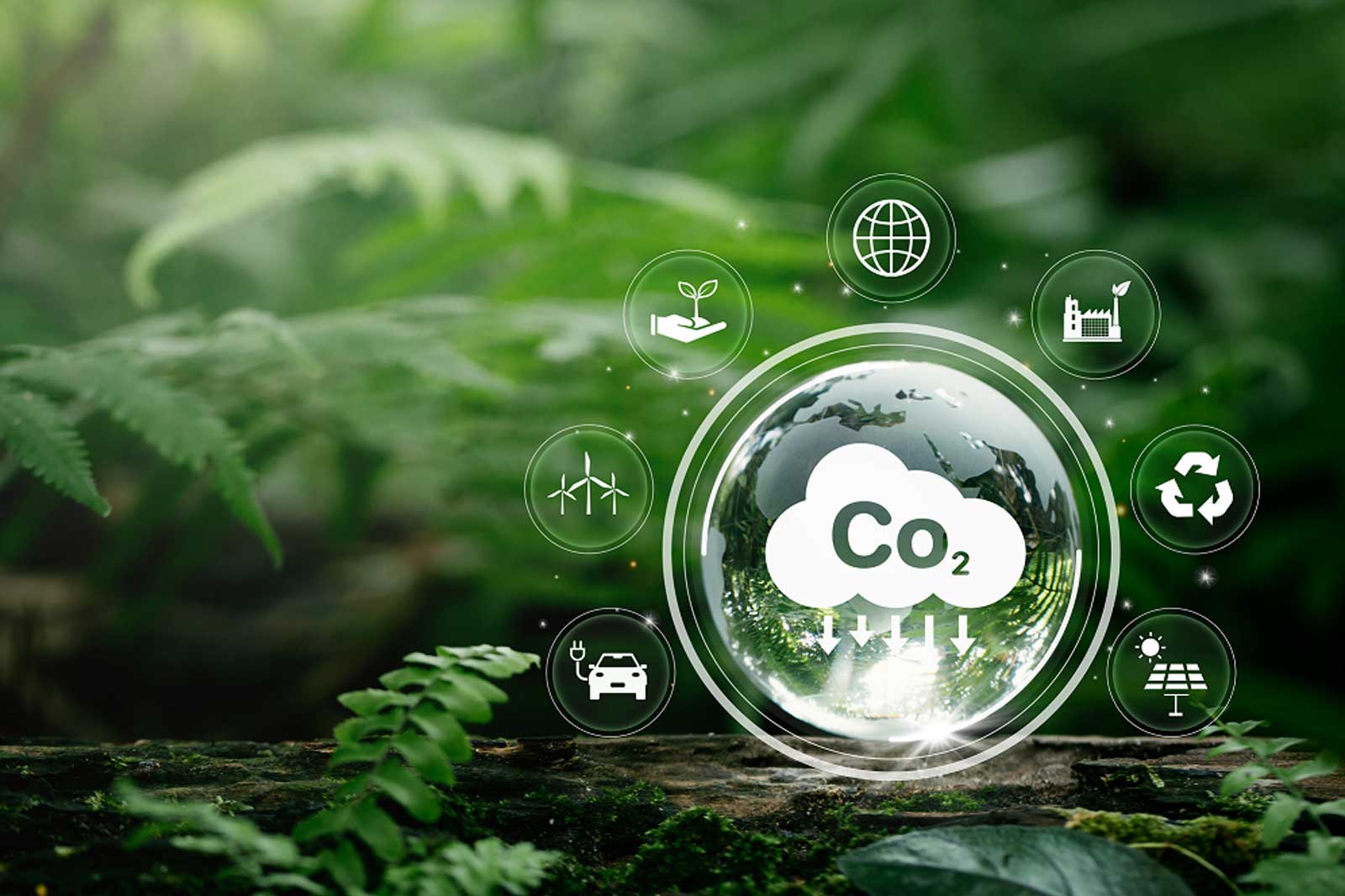24.10.2024
According to the Climate and Energy Outlook (KEV) published today, the Netherlands is very unlikely to meet the legal climate target of 55 percent emission reduction by 2030. Under current policies (enacted and proposed), the Netherlands achieves reduced emissions of 44 to 52 per cent in 2030 compared to 1990. The new plans still on the agenda add little to this net: 45 to 52 percent reduction. This makes the maximum emission reduction 5 percent lower than last year. Only additional policies that deliver reductions quickly can bring the 2030 target closer.
Marinus Tabak, Country Chair RWE Netherlands and COO RWE Generation: "The KEV shows that additional policies are needed to meet the climate target and we are convinced that this can be done with carbon removal and the creation of negative emissions. We have been arguing for this for several years, it is now really time for the government together with the market to make this possible soon."
To meet the one-and-a-half degree target, the amount of CO₂ in the air must be drastically reduced. One way to do this is to add less CO₂ to the atmosphere but that is not enough. According to Marinus, the main message remains to continue with sustainability, greening and reduction but, on a European and global scale, it is inevitable that we will have to create substantial amounts of negative emissions, taking net CO₂ out of the air.
RWE's power plants can play an important role here. On the one hand, because of the security of supply and affordability of energy and the need for controllable or flexible power. On the other because of negative emissions. "Renewable energy generated by wind and solar is the workhorse of the energy transition, but we need power plants very badly. So don't close them but make them more sustainable," Tabak believes.
BECCUS
RWE wants to bet on making its power plants more sustainable, replacing gas with green hydrogen, and with its coal-fired power plants, the company is going one step further. With the BECCUS (Biobased Energy, Carbon Capture, Utilisation & Storage) project, the ambition is to convert these power plants step by step to 100% biofuels and add CO₂ capture, reuse and storage (if technically and economically feasible). Part of the captured CO₂ can be used for sustainable plastics and biofuels and the other part can be stored in, for example, gas fields in the North Sea and off the coast of Norway, where such projects are being worked on.
If the BECCUS project goes ahead, it will result in negative emissions of 11-14 megatons. That amounts to 7-9 per cent of the annual CO₂ emissions of the whole of the Netherlands. By comparison, to meet the climate targets, the government still has a gap of between 12 and 36 megatons of CO₂ to fill, according to PBL. RWE's deployment makes a major contribution to this.
Additional policies with quick impact
RWE calls on the Dutch government to quickly come up with a roadmap for negative emissions and further advocates supporting and stimulating technologies and creating a market. Finally, preconditions such as nitrogen space for renewable energy projects, faster permitting (e.g. of projects such as the Delta Rhine Corridor), a push for electrification and green hydrogen and a CO₂ standardisation of demand for industrial products are of great importance.
Climate neutral in 2040
RWE has a clear sustainability strategy, which is set out in the 'Growing Green Strategy'. Read more about our sustainability strategy here. More information about the BECCUS project can be found here.
